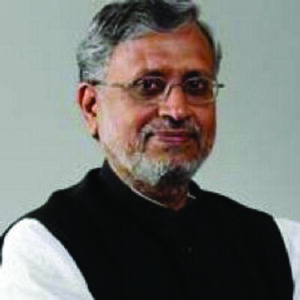NEW DELHI, MAY 20

Senior BJP leader and former deputy chief minister of Bihar, Sushil Kumar Modi has headed ministerial panels on Integrated Goods and Services Tax settlement in the past and believes that the Supreme Court’s verdict on the GST Council’s recommendations not being binding on states and the Centre is nothing new and that this was already the case.
In an interview to News18.com, Sushil Modi said Article 279 (1) of the Constitution states that the GST Council is a body that can give recommendations and can only propose.
The SC in its verdict on Thursday said that the GST Council recommendations are not binding on either the Centre or the states and only have persuasive value.
“The Union and states have simultaneous powers to legislate on GST and the Constitution does not envisage a repugnancy provision and GST council must work in a harmonious manner to achieve a workable solution,” the court said.
The SC ruled that the provisions under Articles 246A and 279 indicate that states and the Centre have equal powers to legislate on taxation matters and cannot act independently of one another. The provisions highlight competitive federalism, the bench headed by Justice DY Chandrachud added in a ruling that came on an appeal against a decision of the Gujarat High Court pertaining to levying tax on ocean freight under the Integrated Goods and Services Tax (IGST) Act, 2007.
Can the verdict lead to confusion and chaos if states refuse to accept the council’s decisions or recommendations?
Sushil Modi said that no state can afford to not implement GST and no state has ever disregarded a decision taken in consensus by the council.
“We are united by trade. The state that will not accept GST will bear the loss. For example, Tamil Nadu goods are consumed in Bihar and if Bihar won’t get that tax, it will stop trading with Tamil Nadu,” he explained.
The Rajya Sabha MP cited an exception where Kerala asked for voting on the issue of including lottery under GST and the state had to accept the percentage of tax fixed by the council.
But can the Constitution provide for the establishment of an adjudicatory body for dispute settlement?
Sushil Modi said that it has been many years since the council implemented the system and it was in the beginning that the government faced a lot of problems.
“Now, there are only insignificant problems that can be solved during the course of time,” he added.
What if states ruled by BJP rivals point to the federal structure and the right to fix rates as per their discretion? Sushil Modi said those states will then have to bear losses.
“If any state does it then that state will be isolated and there will be no trade with that state,” he said.
The MP said that earlier there used to be Value Added Tax (VAT) and traders used to file GST at different rates in different states, which was hectic.
The BJP leader said that the Congress made the council decisions binding but had to withdraw as states opposed the move, citing the federal structure.












